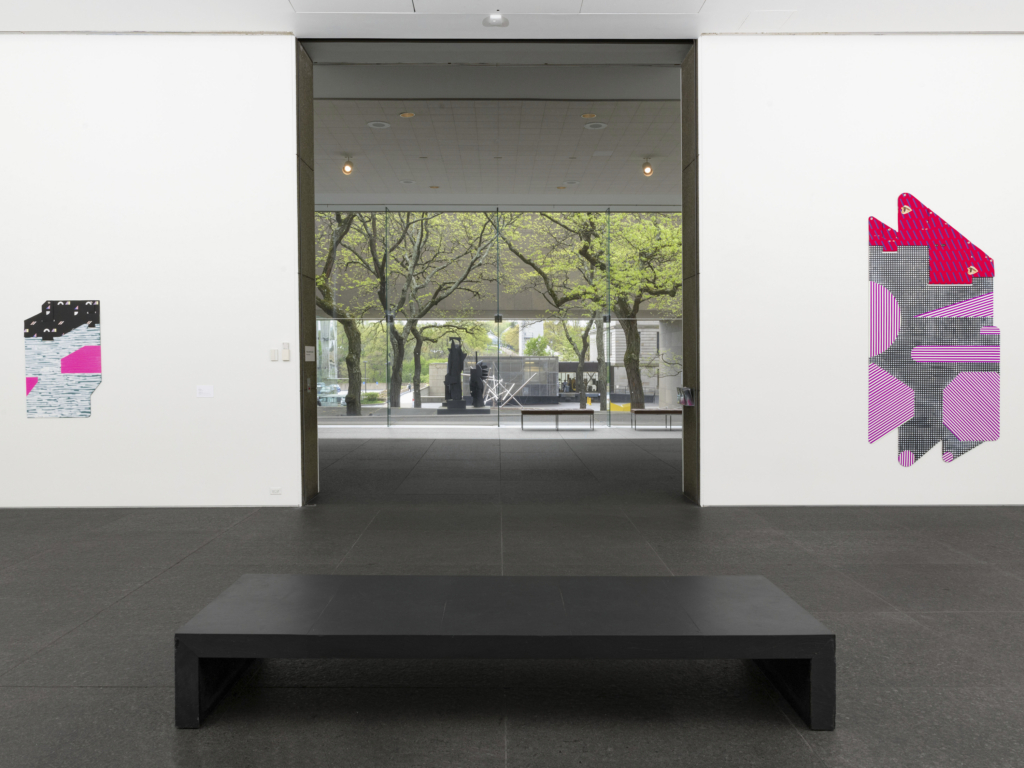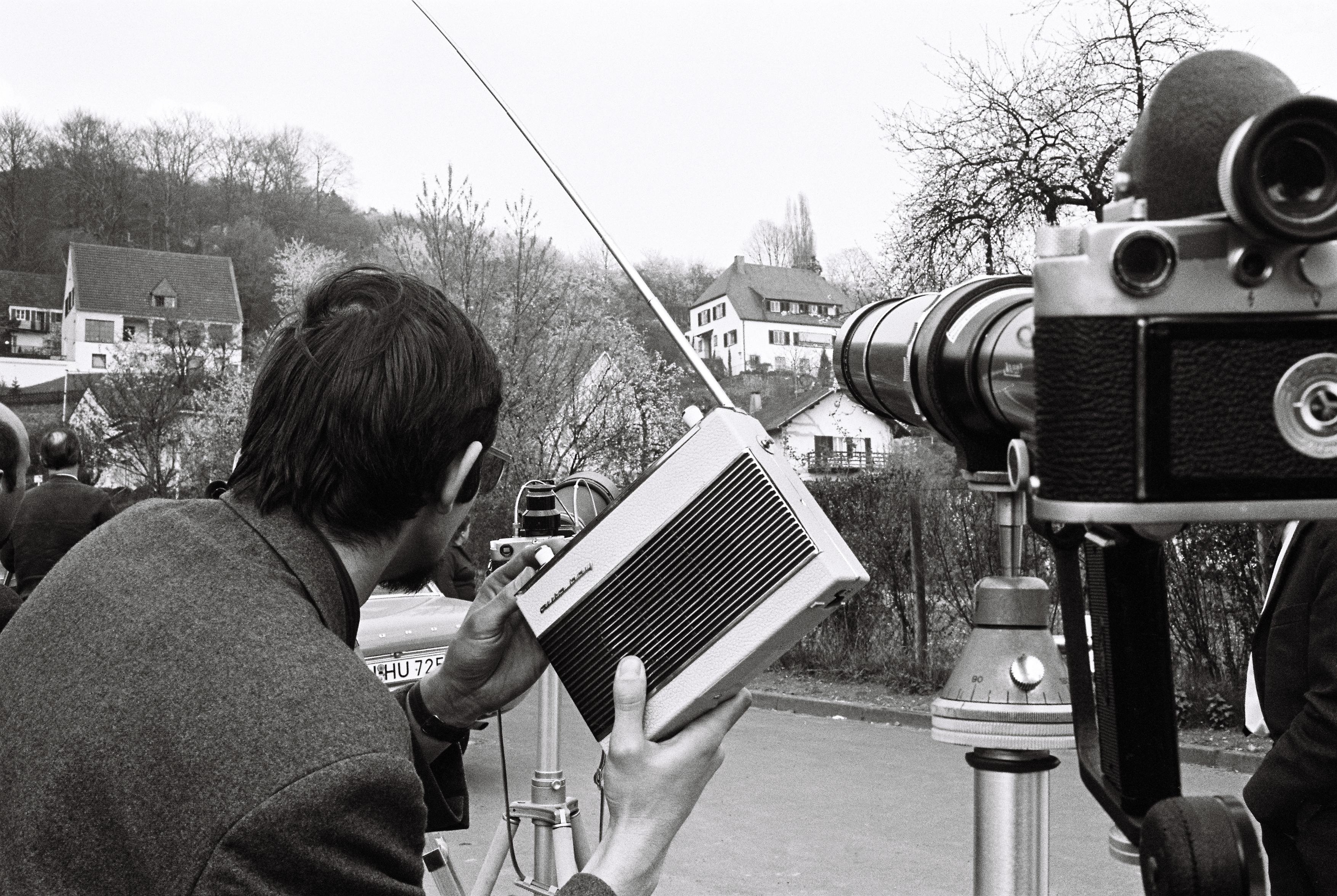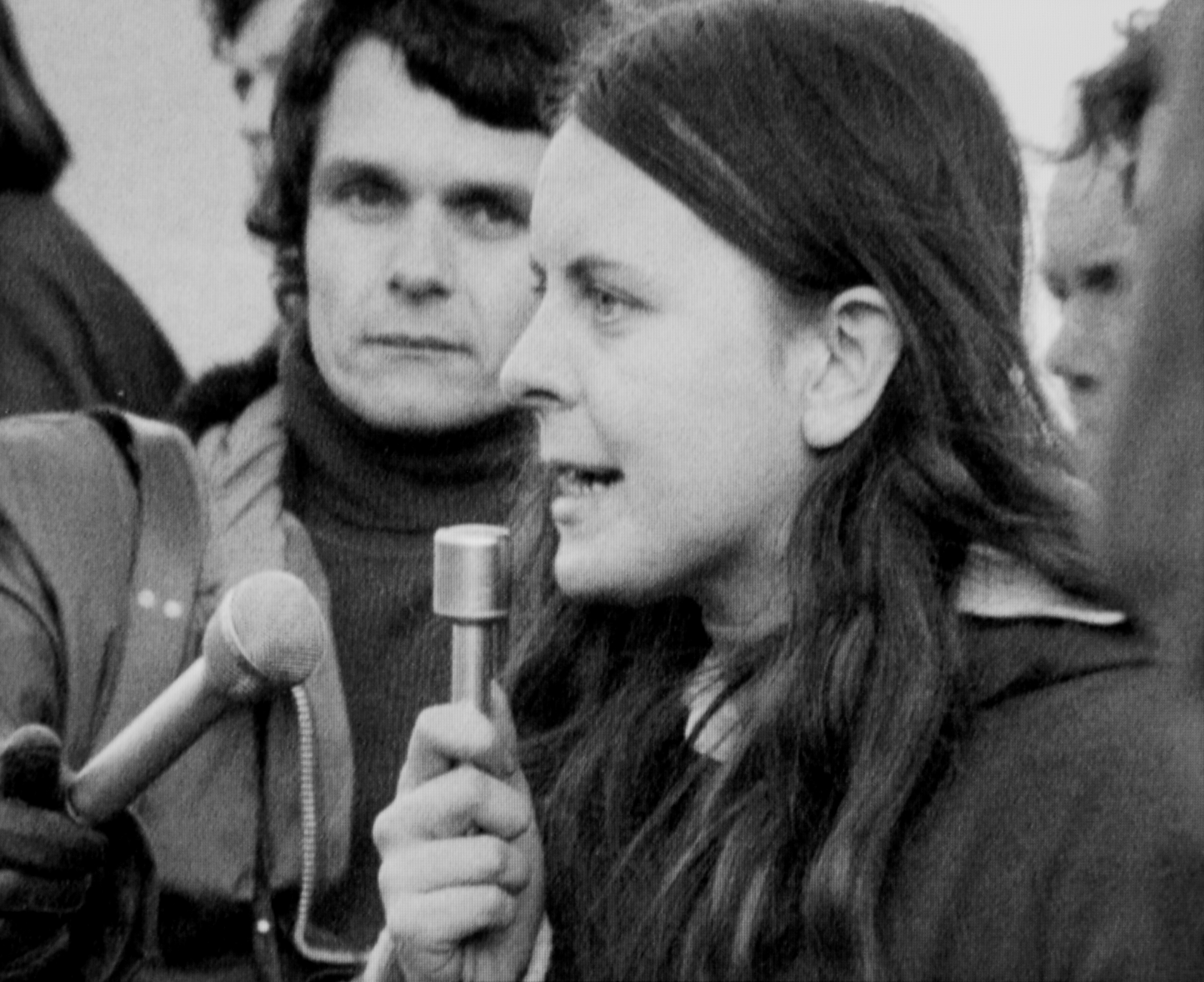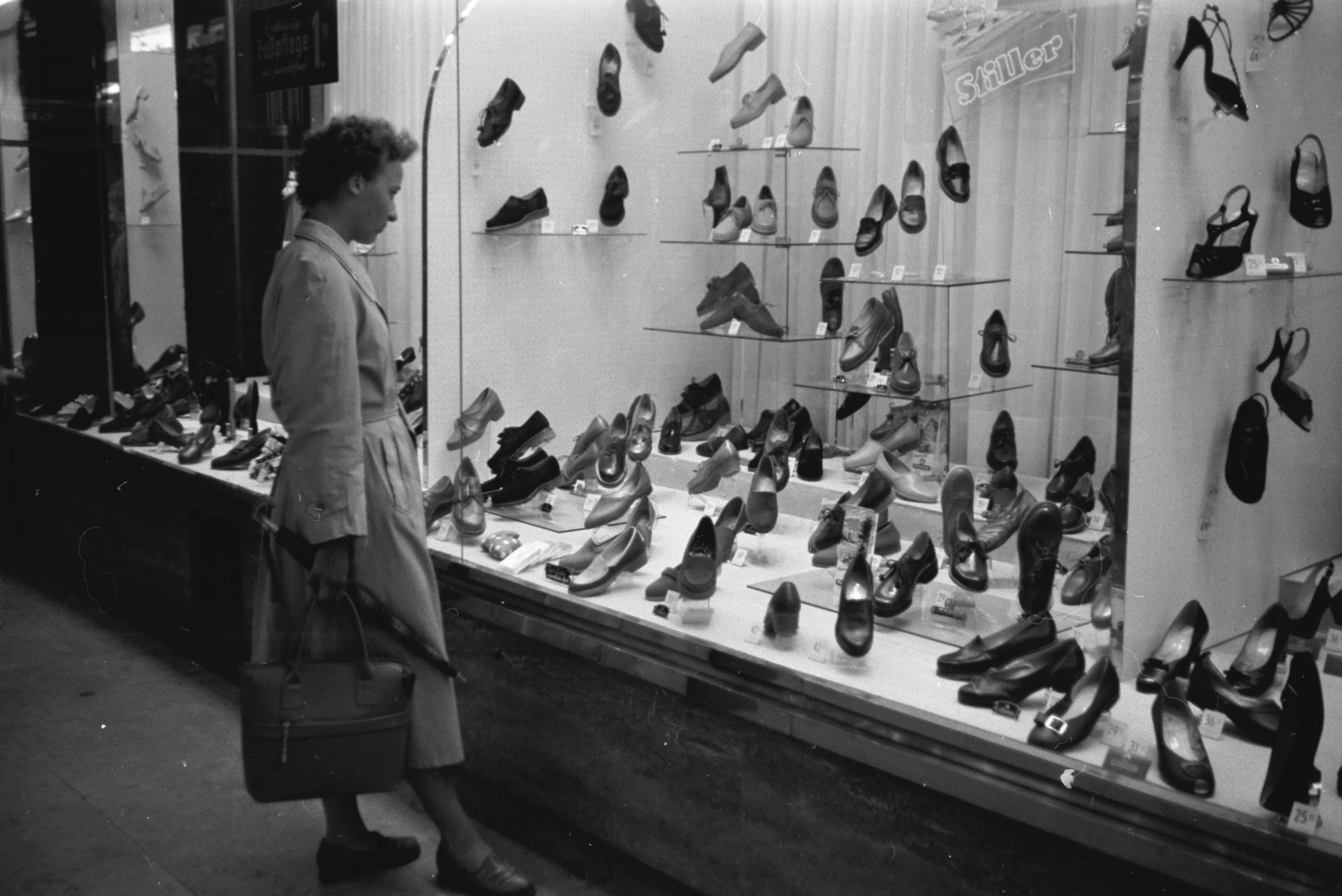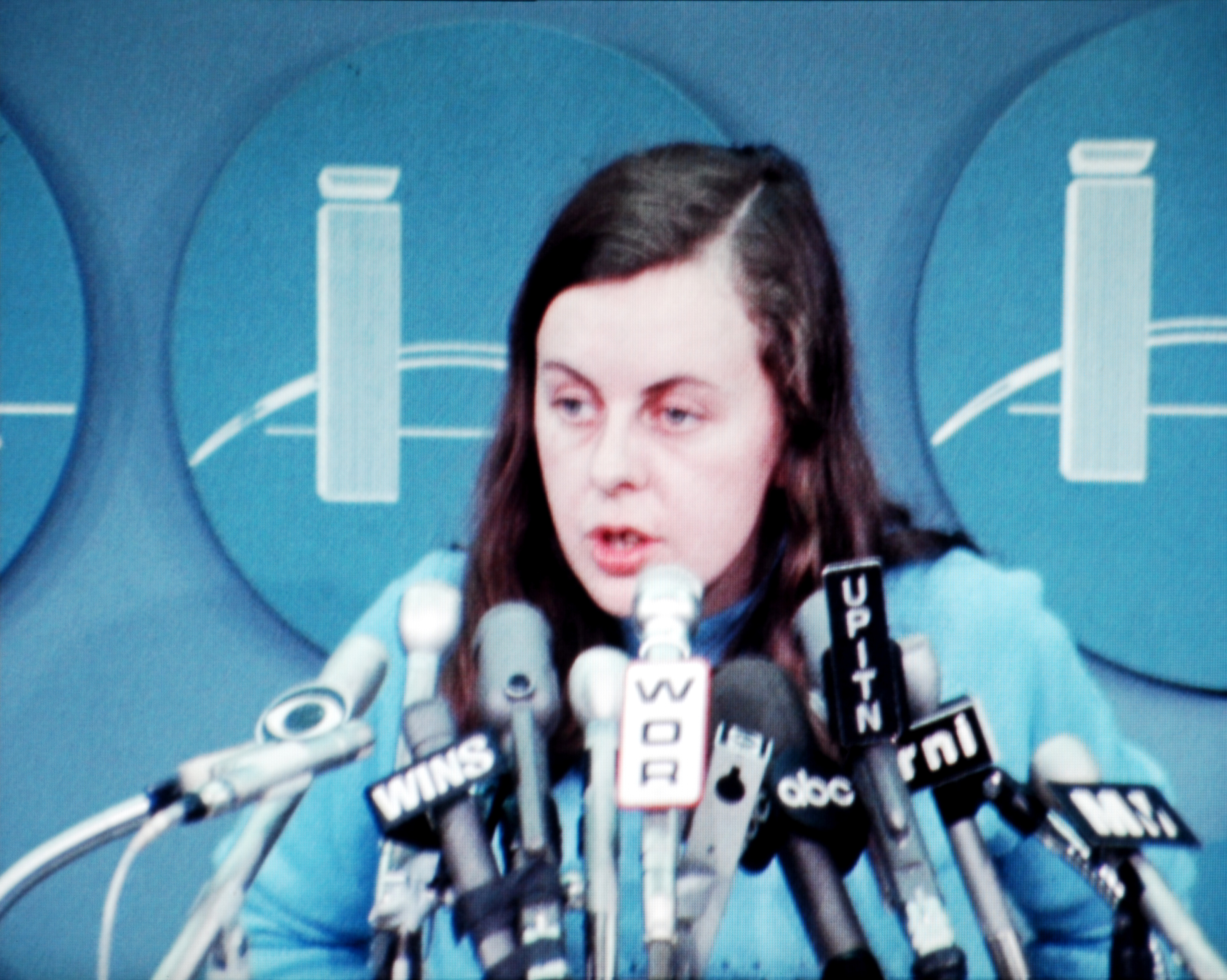Forum 68
Duncan Campbell, the artist’s first American solo exhibition, brings together three recent films and a related group of large-scale screen prints. Based in a sincere desire to understand the past, as well as the conviction that documentary is only “a peculiar form of fiction,” Campbell’s (Irish, b. 1972) films trouble the boundaries between the actual and artful in historical narrative and media representation. In the three unconventional biopics exhibited here, the artist combines archival material with original footage and narration—“authentic” documents with fictitious elements—to craft engaging portraits of three people who directly or indirectly affected his homeland of Ireland. Captivating in their specificity, their stories also resonate with recent world events.
Campbell’s most recent film, Arbeit (2011), takes as its subject Hans Tietmeyer, a German economist and bureaucrat who played an important role in the centralization of the European financial system, which has recently caused profound turbulence in the economies of Ireland, Portugal, and Greece. Make It New John (2009) looks at the life of troubled American automobile engineer and mogul John DeLorean and his iconic DMC-12 car, as well as the West Belfast plant where it was (briefly) produced. Bernadette (2008) focuses on Bernadette Devlin, the controversial Irish republican MP and civil rights activist who became an object of media fixation at the start of Ireland’s “Troubles” in the late 1960s.
In each of these films, the artist positions himself as the unreliable storyteller, filtering history through the lens of personal interpretation and adopting the self-conscious and doubting narrative tack of 20th-century Irish author Samuel Beckett. Punctuated with incongruous sounds, desynchronized audio overlays, and animated elements, Campbell’s films reveal the artist’s hand in their creation, denouncing documentary’s claim to objectivity. In this way, the artist acknowledges the limits of his own and other representations of the past, coming closer to the truth than do accounts that present themselves as authoritative or conclusive. In the process, he engenders a healthy skepticism in the viewer, challenging us to consider what we know and how.

